Dean Curtis - Do You Have the Data You Need to Improve Sales? - PODCAST TRANSCRIPTION
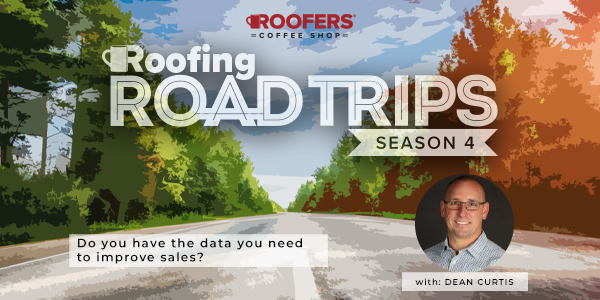
Editor's note: The following is the transcript of a live interview with Dean Curtis of Ingage. You can read the interview below or listen to the podcast.
Speaker 1:
Welcome to Roofing Road Trips with Heidi. Explore the roofing industry through the eyes of a long term professional within the trade. Listen for insights, interviews, and exciting news in the roofing industry today.
Heidi Ellsworth:
Hello and welcome to another Roofing Road Trips from Roofers Coffee Shop. My name is Heidi Ellsworth, and I am road tripping today cross country to talk about something that is important to every single roofing company out there, and that is data. Knowing your data and bringing it all together with technology. I am honored today to be with Dean Curtis, CEO of Ingage, to talk about this important topic. Dean, welcome to the show.
Dean Curtis:
Thanks so much for having me, Heidi. Appreciate it.
Heidi Ellsworth:
Thank you. I have tell you, this is one of my favorite topics. You've been on the show before. I love your platform and what you do. Last time, we talked a lot about the presentations and how that all works, and we'll touch on that a little bit today. But today is all about data, and having this data for the contractors and for the roofing companies. So before we get started, why don't you go ahead and introduce yourself and let everybody know a little bit about you and Ingage?
Dean Curtis:
Sure. Thanks again. So as you mentioned, I'm the CEO of Ingage. I've had the great fortune of being in the technology industry for more than 25 years with great companies like Oracle and Palm and Apple, and have been at Ingage for the past five years. I have a real passion for helping businesses match technology so that they can do so many different things. Gain efficiencies in their business, improve productivity. And then I think really relevant, our topic today around helping drive their business forward through the use of data and analytics.
Heidi Ellsworth:
I tell you, so let's... When we're talking, just to level set for everyone out there, when we're talking about the Ingage platform and the presentations, this is an online program that delivers consistent, amazing presentations that you helped put together. Talk just a little bit about that, just a little bit more, and then how that correlates into being able to pull that data on those presentations.
Dean Curtis:
So at Ingage, we believe it is just plain wrong, that it's so hard to create an amazing presentation, share it with the team who needs it, and then measure the impact so you know that the investment was really worth it. So many times, companies are spending countless dollars on sales content for their team, but never know who has it, who's using it, who has the most updated things. What we've done with Ingage is allowed our customers to really simply create engaging, interactive presentations that are easily shared with their team. So companies primarily are using Ingage when selling in the home or virtually, and our platform provides all the administrative controls that you need in order to ensure everyone has the latest stuff. And most importantly, we can record rich analytics to see who's using the content, how it's being used in the context of the sales.
Heidi Ellsworth:
Wow. I'm assuming a dashboard for the owner, the sales manager, and for each salesperson, where they can really see what happens, where the engagement is throughout that presentation. So let's talk a little bit about being able to see that dashboard and really see what's happening.
Dean Curtis:
As part of the platform, there's the front end, which is the presentation software. That's where sales team members will... And really, we talk about it in terms of sales, but our platform can be used for lots of different things, but that's the primary use case. When you go into the admin dashboard, you see something as simple as how many presentations were delivered, how long were presentations delivered for, how many pages were delivered. Real high level data. There's lots of different ways that you're able to see that and then dig into, through rich reporting and pivot tables and all kinds of technical stuff, in order to see the detail of what's been happening as people have been using the content that you've created for them.
Heidi Ellsworth:
A as a sales manager, then I'm able to... In the old days, it would be a ride along to see how your team's doing, or maybe listening to calls. Now they're able to really look at this presentation. What are some of the things that they're seeing?
Dean Curtis:
There's many ways to use the data that's being collected with Ingage to help the sales team. I'll start with leadership. Just simply seeing, as I mentioned, how many presentations have been delivered. Hey, we ran 250 appointments last week. I only have 112 presentation views. What are they doing in the home? In our process, you are supposed to do a presentation. So what is happening there? Maybe there's a good reason for it. It's not just a punitive thing. You want to know, hey, what's happening? So who's presenting? Maybe we see that certain reps are presenting and for longer periods of time than other reps. So just high level metrics to really understand how the content's being used in the home, what's being presented, and then aggregating that data across the team to really understand, based on time and presentation, number of presentations, what is actually being most effective? So they're really helpful in determining which reps are spending time where, and then maybe correlating that to close rates.
Dean Curtis:
So as we know, we can say, okay, we've done 200 presentations and we had a close rate of 42%. Great. So those 84 deals, I had to do some quick math there, those 84 deals that closed, what was unique about them versus the 116 deals that did not close? Maybe we could do some comparison of that data. All right, great. We know that the deals that... And you could keep going in and digging into that level of information. But really being able to correlate what people are doing in the home, or virtually, could be virtual, to the things that are working and to the deals that are closing. That ultimately can really be used to help coach the team in order to be their best in presenting the value proposition that you're trying to present, and obviously closing deals and making more sales.
Heidi Ellsworth:
Right. Well, I can really see that because as a salesperson, to be able to say, "Okay, these jobs I closed and this is what I did. These jobs I didn't close, and this, I did a little bit different, or not." Just being always able to go back and evaluate was always really important to me. I think sometimes when you have this data or analytics, some people get a little bit defensive, but really, it's there to help.
Dean Curtis:
Absolutely. You can look at it as the big brother. Oh my gosh, they're watching every presentation. I would think of it as a gift as a salesperson. Because I think in our own mind, we'll create a narrative as we're going through it. I'm doing my best work ever. And you're like, "Well, yeah, you probably are. And..." Not but, because if you say but, everyone's going to say, "Well, everything you said before, it doesn't matter." "And there are ways we can do it more effectively." We can look across the team, even if you have two or three sales team members, just to know that one is doing it a certain way and another person is doing it another way, and one is closing at a 5% higher rate. What's that magic sauce to get 5% more? Because 5% more in any business, I don't know, 5% of any number is more than I had. So I might as well figure out what those efficiencies are in order to capitalize on what we can improve.
Heidi Ellsworth:
Right. Right. So often, having done both sales and marketing, I know from a marketing perspective, you take all this time to put together these presentations, and you just think you've got it. You're just there, right? It goes to the sales team and they don't like it or it's not working the same way. Ingage really can help bring that marketing and sales team together.
Dean Curtis:
That's like the age old problem, bridging the gap between sales and marketing. Marketing thinks they nailed it and sales is shaking their head, wondering how they even thought this would work. The way Ingage works is, like any presentation tool, we have pages, but what we also allow is the combination of those pages into sections. A lot of the times, especially in this industry, there are defined segments of a presentation. The selling process that people go through is to present the company's story, talk about the demolition process, talk about... Whatever those steps are in your selling process, we can help organize the presentation in that way. And therefore, you know, from the data, who's presenting and what they're presenting.
Dean Curtis:
So I can say, "Oh, we had great adoption of section one and section two, but only 70% of our reps got to presenting section three and we got a drop off at section four." Is there something wrong with the ordering of how we're presenting? Would it be better if we... And maybe you're not going to be able to tell that directly from the data, but you will be able to ask much better questions to the sales team when you come back in and say, "Hey, we're noticing a big drop off between section two and section three." Whatever it happens to be. "We notice that the financing slide only gets presented 8% of the time. Okay. What if we put it earlier?"
Dean Curtis:
It really helps you make some decisions around and have a good conversation with the sales team, rather than maybe the old game of pointing fingers back and forth to say, "Marketing doesn't give us what we need." "Sales doesn't do what we ask." But maybe, based on the data, we can look at what is actually happening, come up with really good questions, have a great conversation, and make some improvements to the presentation so that it flows even better and we close at an even better rate.
Heidi Ellsworth:
To your point, what you said earlier, if you think about that, looking at the presentations that are seeing high closing can help also. Because I know looking back on it, sometimes there's sections that you don't even need, because they're watching their customers, they've of got it down, and it seems like you could just... And you continue to refine and build these great presentations.
Dean Curtis:
Absolutely. Just knowing what's being presented and what's not, something simple as that. Did you know we have a 50 page deck and seven pages? The average time spent is less than five seconds. Maybe they're being presented, but they're being breezed by, is what they're being. What's wrong with those pages? Is there information on there... Maybe there's information on there that's not correct. Maybe in today's day, maybe there's a color that's out of style or that's out of stock. You don't want to present that, right? So they're flipping through a page really quickly because it's presenting information that's really not relevant. Okay, great. Maybe we need to organize things a little bit better. Maybe we need to remove that. Or maybe it just needs an update. Lots of really interesting ways to use that data.
Heidi Ellsworth:
Well, and that's one of the things, too. I know you work with manufacturers to make sure that you have the most up to date information, and that they can actually help filter that in so that you're not selling something that's out of stock with everything with the supply chains. Talk a little bit about that.
Dean Curtis:
A lot of different manufacturers that are using Ingage to build their product presentation, so another form of marketing collateral. A lot of folks are getting the printed materials, and those materials are out of date as soon as the shipping label gets put on them. What we're doing is our pitch, at least to the manufacturers, why don't you build a product catalog in Ingage so that it can be delivered seamlessly to their contractors. If you need to make a change, you can make a change, and everyone will get that change immediately, as soon as they connect back to Ingage. It really just streamlines that updating of the information to the contractors and it's always up to date. What's great is, just technically within our product, we can very seamlessly link from your company presentation to a manufacturer presentation, and come back with very little, if any, training to the sales team member. You can incorporate other people's content in your presentation seamlessly.
Dean Curtis:
That whole thing started, I'll give you a little history, we were working with a number of contractors, and they all sold the same stuff. They all sold Kohler walk-in bath. And we were like, "Okay. Well, why don't we just have one presentation for them that everyone shares?" That got us into this idea of, man, there's tons of manufacturers out there. They all have content teams. Let's leverage that. It also takes the burden off of the contractor for building that part of the presentation. Just use the manufacturer content that's there. I don't know. I haven't met anyone with an infinite amount of time to spend. So if I can save them time in getting that piece of the presentation up and running and then let them focus on their value proposition, their company's story, their build out process, their production, whatever it is, the other sections of the presentation that they really want to own their own, great. That manufacturer content can just be something they call in when it's relevant.
Dean Curtis:
And also, they may have multiple manufacturers that they're supporting, so they don't want to have to build out seven different... I carry these seven brands. Well, great. Let's just go get that from the manufacturer. Our goal is obviously to have all of them on Ingage to make it super, super simple for the contractor.
Heidi Ellsworth:
Well, and then from a manufacturer's standpoint, too, they can see the data, right?
Dean Curtis:
Yes.
Heidi Ellsworth:
They can see their section, they can see that data that, again, helps them. Because I know when we were building things out when I was working with manufacturers, again, it's a marketing to sales thing. You don't always know what's important out in the field. And now all of a sudden, you have this great feedback on such the importance of data out there in today's virtual world.
Dean Curtis:
Absolutely.
Heidi Ellsworth:
Wow. Okay. Let's go back a little bit and talk about closing rates again, because I think this is really important. So we talked about sales people on their own can look at their data and see how they're doing. But from a sales manager and a business manager or business owner, as they're really looking at this data, now they're looking at it from a team perspective across the board. That all sudden brings in this whole new level of how are people doing? It's not always just people who are not doing a good job. It really is big focus on people who are doing a great job and why. Talk a little bit about that.
Dean Curtis:
Absolutely. I think a lot of times when you look at analytics, a lot of people go to the negative immediately. They're like, "Oh, what's wrong? What's wrong? Let me fix what's wrong." It's like, wait, wait, wait. Time out. Maybe there's a lot of data that can be garnered to say, what's right? Who's doing a great job and what are they doing? How can we do more of that? Give me more of that. I think in marketing, you look at maybe an ad that you run on Facebook or something like that, and you see a great return. You're like, "All right. Let's go do more of those." It's typical. But maybe, I think a lot of times when we look at analytics, we look at that negative. We think you can actually look at the positive.
Dean Curtis:
So maybe there's a flow that someone's doing, how someone's delivering a presentation that you can see through the analytics. Let's have a conversation with that person. We notice that you're spending more time here, here, and here. What conversations are you driving in the home? What are some of the questions that the homeowner is asking? Because you're not going to capture that anywhere else. But you can see just blips and time of, whoa, you spent eight minutes on page 22. Normally, everybody else in the team is spending a minute on that. What's happening for you in the delivery of page 22? Whatever it happens to be. Let's educate the rest of the team on maybe that's the thing that has you closing at 7% higher than everybody else.
Heidi Ellsworth:
Let's do a little role playing during that sales meeting. Let's bring some of these successes out and find out why page 22 is so important.
Dean Curtis:
That's right.
Heidi Ellsworth:
That gets missed. A lot of times, salespeople, they're just worried about their sales. Boom, boom, boom. They aren't thinking, they're just doing. To be able to pull this back and share it with the team, that's super powerful. What are some of the success stories that you've seen with some of your contractors at Ingage that go along with this?
Dean Curtis:
We have a whole bunch on our website. I'll share our link in a little bit. Three different customers who have really seen a big uptick in close rate after using Ingage. One is East Coast Roofing. What they found was there was a total lack of consistency in their sales process, in their presentations. By implementing Ingage, they found a lot more consistency, and driving those conversations that we talked about really to make it consistent. They saw a 4% to 6% uptick in close rate. So not just 4% of their close rate, but four percentage points greater in closing. It really came down to that consistency of the content that helped them get there.
Dean Curtis:
The second one is Ridgetop Exteriors. They've really done a great job of making sure they have the latest information in the presentation so that what is being presented is what's real for what can be delivered. They saw that when they were able to quickly change the presentation to adapt to in stock, out of stock, material changes, things like that. Manufacturers that could deliver, manufacturers that couldn't deliver. They were able to make sure their presentations were completely updated. They saw a 3.5% increase in close rate, and also, their average ticket went up 12%. So 12 percentage point increase on their average ticket as well because they could deliver the goods. And that was all because their presentations were able to portray the right story consistently.
Dean Curtis:
And then last but not least, C&L Ward saw a 7.5% increase in closing rate. It really was about the confidence that the rep had, because they had something that was really consistent in their hands, they knew that if it was updated, they were going to have the latest. It really made training easier and got their reps out on the road faster. So that was also really important.
Heidi Ellsworth:
That is such a good point. When it comes to training, everybody's looking. We see it on the classifieds on Roofers Coffee Shop every day. They're looking for sales people, looking for sales people. This platform really gives the perfect training for new sales people.
Dean Curtis:
That's right. There's lots of ways that we can help you understand, how can I take Ingage and leverage Ingage to train on Ingage to get people using Ingage? It's a little bit meta, right? We're living in the matrix on this. But it's really powerful because they're training on the platform they're going to be using to sell, which is really important.
Heidi Ellsworth:
Wow. I love that thought. It's so consistent. As we start going through here, that is what's so important. I know that we also, and you mentioned this just a little bit earlier, but we're so used to going into the home, going to the kitchen table, having that presentation. But since COVID, and now with everything that's going on, and just new behaviors of consumers, there's a lot more virtual that's being used. You'd mention that this isn't just for sales, it also can be for customer service. It can be for any of those types of things. What are you seeing there?
Dean Curtis:
Think of any process in your business that's consistent. Is there a way that you have... And you have content around that you want to codify it. We use, as you would imagine, Ingage for lots of different things within our company to make sure we're being really consistent with our messaging. Our onboarding team uses Ingage presentations in order to make sure we're doing things consistently to make sure we have a great experience for our customers.
Dean Curtis:
We see a lot of folks who are really taking seriously the idea that if they can reduce the amount of times they have to go to someone's home in order to win a deal, that's really effective for them. The price of gas. I don't know what it is where you live, but it's not cheap here in Philadelphia. If we can reduce some of those other overhead costs by doing virtual qualification. A lot of folks in our design build side of our business are all doing their initial call virtually to really make sure, qualify in the customer before going and spending the valuable resource of a person going to a home in a vehicle and the amount of time that takes.
Dean Curtis:
I had a meeting last week. I live in the northeast suburbs of Philadelphia, and I had a meeting last week that was a one hour meeting in Philadelphia. It was five hours of time because I had to leave early, worry about traffic, coming home, all of those things. If you can build those efficiencies within your business of qualification or follow ups or whatever it is, doing things virtually with consistent content that helps drive better conversations, those are all wins across the business.
Heidi Ellsworth:
Exactly. We are seeing that. We are seeing that with a lot of contractors, we're seeing it across the board. So this is the tool that you need in order to start making that happen. So let's talk about that a little bit. Dean, how do they get started? How do they get started on this platform?
Dean Curtis:
We've been talking for a while now and people have heard all about it, but now they need to see something. The best thing to do is get a demo from our team. You can book a demo right on our website at Ingage.io. Ingage is spelled with an I, I-N-G-A-G-E dot I-O. It stands for interactive engagement. We really want to help you engage better with your customers, with your perspective clients, and we think you that through interactive content. Our team does a really great job to first understand your business. We're not going to just, you show up and we throw a demo at you. That's not it at all. We really want to understand how we can help your business, and then we'll tailor the demo to show you the power of Ingage and how it can help your business.
Dean Curtis:
Once you sign on with Ingage, when you're getting started, we have lots of sample content. We have manufacturer relationships, we can get you manufacturer content. Our onboarding team will take your team from zero to deployed as fast as you're willing to go. We also have designers to help you with the presentation side of things. So a full onboarding process to meet you where you are. If you need us to help build your presentation, we can do that. Because everyone has only so much time, and we want to make sure you're up and running as fast as possible. And realize also, this is a big change. It could be a big change for your business, and we want to help manage you through that. So we have a whole onboarding process to really help you through and get you from whatever you're doing today for presenting to Ingage.
Heidi Ellsworth:
That's excellent. I think for a lot of people out there, sometimes you just think of these new technologies and you're just like, "Oh no, we can't. We just don't have the time. We don't have the people." But with your onboarding and with the ability to get it all in place, you're actually saving time, and you're saving time for your sales people, so much time, down the road. It's a total payoff.
Dean Curtis:
Yeah, and you can see it. You look at the data we were sharing earlier, there is an ROI. One of our key tenants of our company is all about determine the return on investment of every resource we spend. We think about that. We think that way with our customers as well. If you're not getting an ROI from Ingage, I don't want people to use it. I want it to help you close deals faster, I want it to help you streamline your processes, I want it to help you train your sales team faster. I want all those things to be true, because then you'll renew with us, just like you would want your customers to come back when they had another problem to solve that you could solve for them.
Heidi Ellsworth:
It's so great. I love this. I hope everyone out there will take advantage of seeing these demos, to seeing how it will fit into your business, because this virtual future is here. This is not something like, oh, it'll happen in a couple years. But everyone's using it, and I really believe it's the differentiator when it comes to the sales and to the business overall. So Dean, thank you. Thank you so much. Great information.
Dean Curtis:
You're welcome. Thanks so much for having us on again. We appreciate it. I look forward to connecting with lots of contractors out there.
Heidi Ellsworth:
Yes. So do we. I would love for all of you to find out even more about Ingage on Roofers Coffee Shop. So check out their directory, all their articles, other podcasts. Great things, great information. And of course, sign up for that demo. I've watched it and I've seen it. It will change your business.
Heidi Ellsworth:
I also would love to make sure that you hear all of the podcasts out there. So be sure to visit Roofers Coffee Shop under the RLW section for our Roofing Road Trips. Or on your favorite channel, be sure to subscribe and hit those notifications so you don't miss a single one. We will be seeing you soon on the next Roofing Road Trips.
Speaker 1:
Make sure to subscribe to our channel and leave a review. Thanks for listening. This has been Roofing Road Trips with Heidi from the rooferscoffeeshop.com.













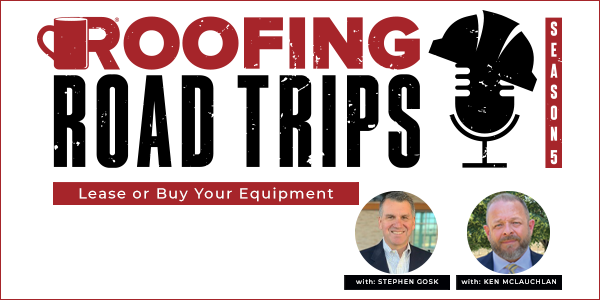
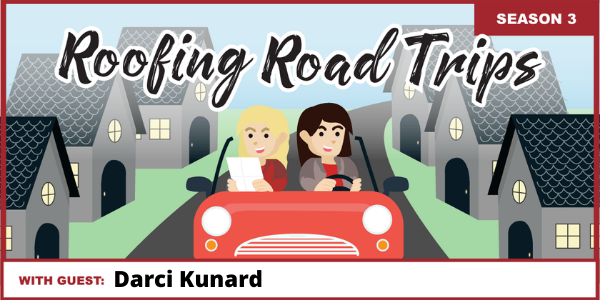


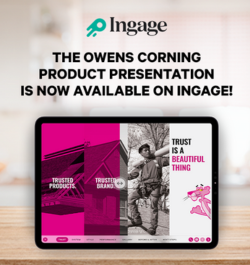

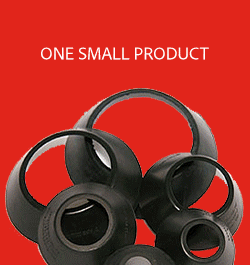


Comments
Leave a Reply
Have an account? Login to leave a comment!
Sign In